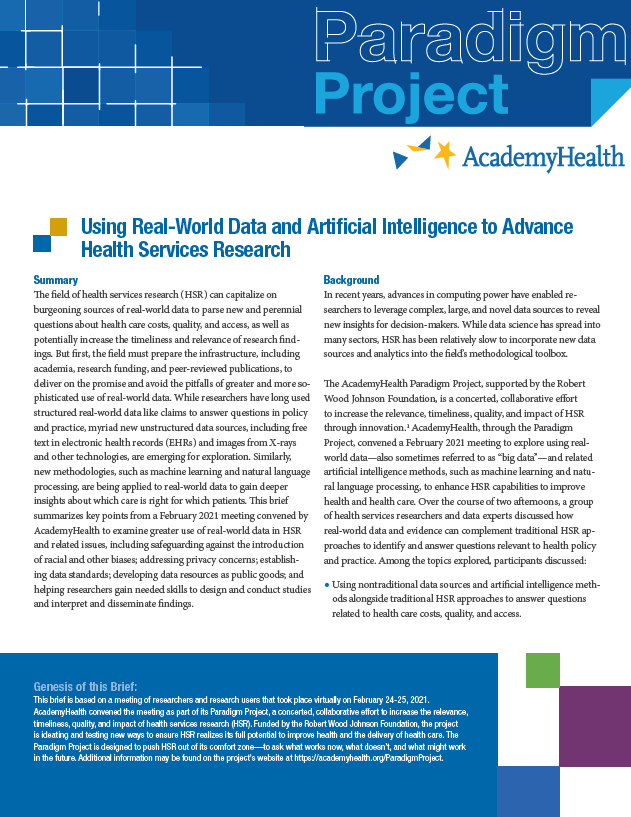
Using Real-World Data and Artificial Intelligence to Advance Health Services Research
This brief is based on a meeting of researchers and research users that took place virtually on February 24-25, 2021. AcademyHealth convened the meeting as part of its Paradigm Project, a collaborative effort to increase the relevance, timeliness, quality, and impact of health services research.
The field of health services research (HSR) can capitalize on burgeoning sources of real-world data to parse new and perennial questions about health care costs, quality, access and equity, as well as potentially increase the timeliness and relevance of research findings. But first, the field must prepare the infrastructure, including academia, research funding, and peer-reviewed publications, to deliver on the promise and avoid the pitfalls of greater and more sophisticated use of real-world data.
This brief summarizes key points from a February 2021 meeting convened by AcademyHealth’s Paradigm Project to examine greater use of real-world data in HSR and related issues, including safeguarding against the introduction of racial and other biases; addressing privacy concerns; establishing data standards; developing data resources as public goods; and helping researchers gain needed skills to design and conduct studies and interpret and disseminate findings.
Other key topics discussed include:
• Using nontraditional data sources and artificial intelligence methods alongside traditional HSR approaches to answer questions related to health care costs, quality, and access.
• Tapping real-world data sources to untangle the causal inference of policy and practice interventions on heterogeneous subgroups.
• Preparing the HSR infrastructure, including academia, research funding, and peer-reviewed publications, to capitalize on the promise and avoid the pitfalls of real-world data.
• Applying research findings to answer real-world policy and practice questions related to improving health and health care.